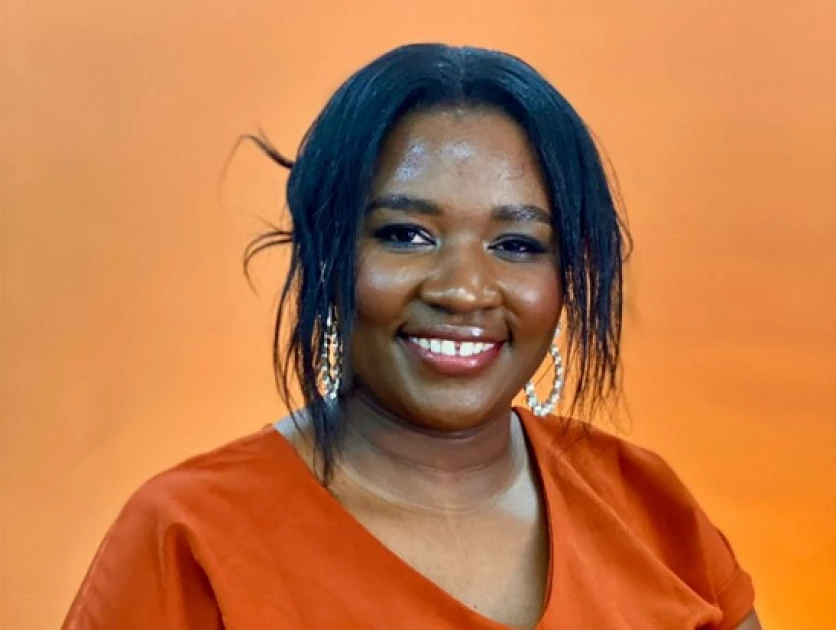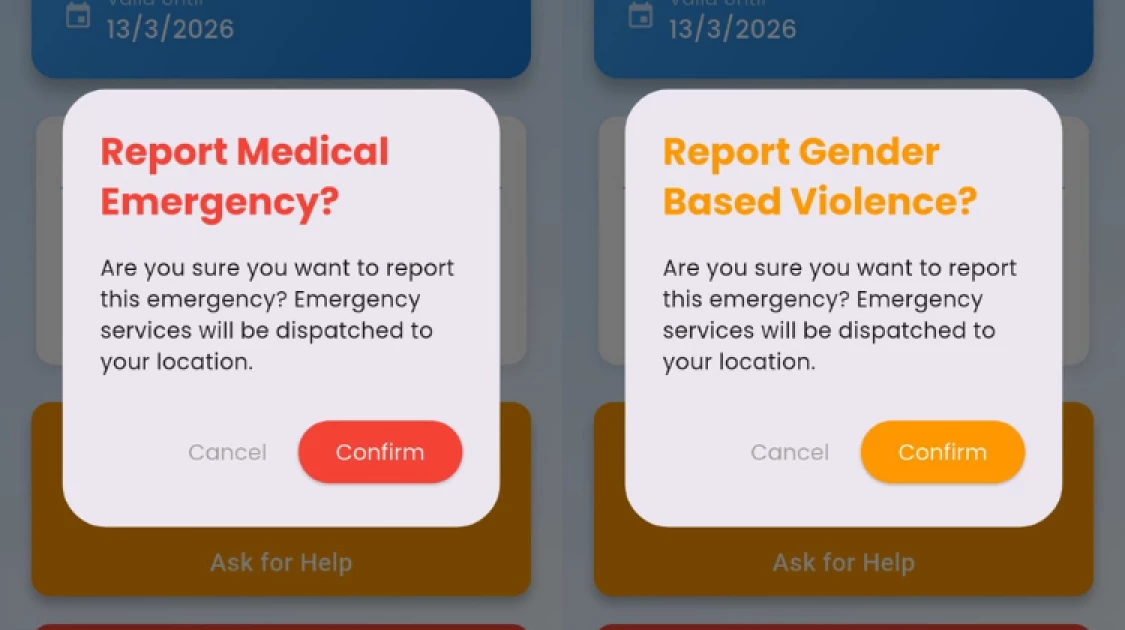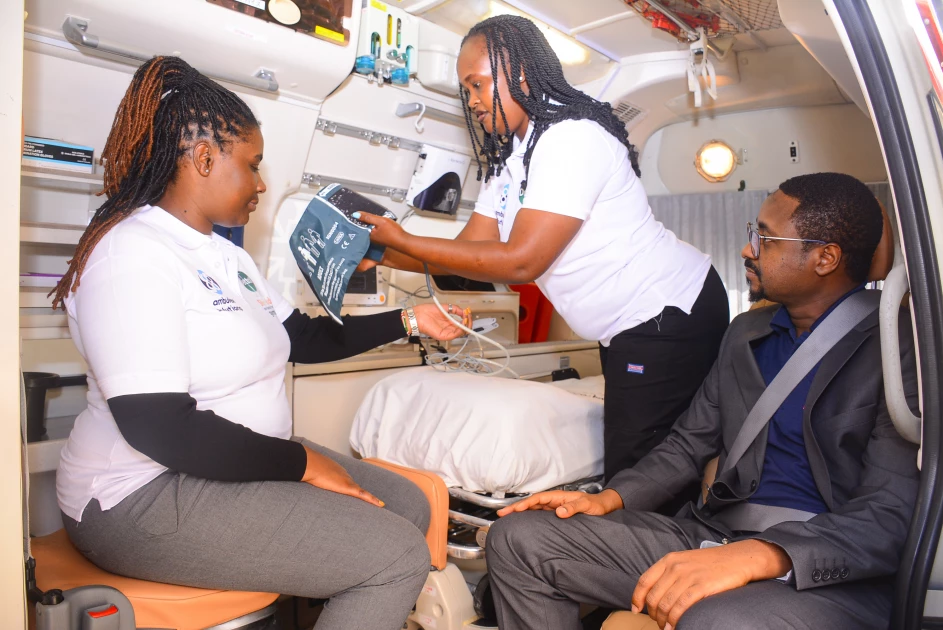Judith Awuor: My mission to save lives in the Golden Hour

Judith Awuor Oketch, the Founder and CEO of Ambulex Solutions. Photo/Handout

Audio By Vocalize
“Has anyone called an ambulance?” This was Judith’s first question when she got to the scene.
She offered to call a private ambulance operator, who asked for a Ksh.5,000 down payment to take the patient to hospital. The patient would later succumb to injuries.
This is the case with a number of emergency cases in Kenya, where it is estimated that it takes nearly 2 hours for an ambulance to reach a patient. This is contrary to the 15-20 minutes response time recommended to save lives within the ‘Golden Hour’. Emergency calls in Kenya are made through 999 public hotline and others established by organisations and private ambulance providers.
2023 data from the National Police Service, showed that nearly 115,841 medical emergency cases were reported in Kenya between 2018 to 2022. Majority of the cases reported (78,287) were of assault, while defilement followed at 28,987. Elsewhere, the Ministry of Health, reported at least 1,687,525 medical emergencies related to road traffic accidents in 2022.
With this high need for emergency services in Kenya, the country lacks data on specific number and location of public ambulances and emergency departments, as detailed in the Kenya Emergency Medical Care Strategy 2020-2025.
This lack of data impedes emergency care provision in Kenya, where a number of Counties have contracted private companies to offer ambulatory services. On the other hand, some citizens opt for private transport to hospitals, with those in remote villages choosing rudimentary means like wheelbarrows, carts and donkeys.
Targeting the Golden hour
Medical emergency care reduces multiple health risks by preventing complications, improving recovery chances and recovery rates.
However, these golden hour needs are not met when there are no sufficient and timely ambulatory services.
It is these gaps in provision of emergency care during the golden hour that led Judith to conceptualise Ambulex Solutions, a technology-enabled emergency care initiative.
Registered in Kenya in 2019, Ambulex features a Mobile App where citizens can subscribe for medical emergency services or help in the case of Gender Based Violence.
Just like the technology behind cab-hailing services, one can self-request for emergency services on the Ambulex App. The app features include real-time location of the patient or victim of GBV.
“The App has a 5-metre location proximity. So even if your phone goes off after your request, we can rely on that to find you,” says Judith, the founder and CEO of Ambulex.
Citizens using feature phones, commonly known as Mulika Mwizi, can access Ambulex services using USSD code *789*189#.
Once a GBV or medical emergency request is made, the Ambulex team responds by contacting the patient to identify the nature of the emergency. Depending on the location, this information determines whether there is need to send an Emergency Medical Technician (EMT) before ahead of ambulance dispatch.
An ambulance next to the location is identified and dispatch with paramedics on board. When a user is contacted, the information collected also determines whether an EMT can provide care at home, without transfer to a facility.

“We considered a micro insurance plan, where a Ksh.200 subscription covers a household for the entire year. With that you can get up to 2 responses, we are doing from home to facility and facility to facility,” Judith explains.
However, the Ksh.200 subscription plan does not cover patients with chronic illnesses as they might need more than two hospital visits annually. This class of users are offered a different package.
Once a user registers through the App, there is a 24hour waiting period to allow for collection of data including location, medical history, blood group, next of kin, among other information needed in emergency situations.
With this approach, Ambulex aims to fill accessibility and affordability gaps in emergency care and reduce the ambulance waiting time to the recommended 15 minutes. What Judith describes as her mission to save lives when it is crucial – at the Golden Hour.
Home to facility care
Currently, most counties in Kenya provide ambulance services to transfer patients from one hospital to another. This has left a huge gap in home-to-facility emergency responses, as citizens opt for private ambulances or non-medical means of transport.
Filling this gap, Judith says, is crucial in saving lives and reducing risks that emerge when patients are moved from home to facility.
The start-up is exploring partnership with a number of County Governments to support patient care from homes to facilities.
When a patient is taken from their home, they are taken to a facility of their choice. In some cases, the medical response team will advise or on the needed facility depending on nature of the medical emergency and proximity. Rogers, a trained paramedic in Nairobi says prompts calls enable EMTs respond to emergencies before the conditions become complicated.
The Ambulex CEO advises subscribers to consider registering for the Social Health Insurance Fund (SHIF) provided by the Social Health Authority (SHA). This, she says, will enable smooth admission in emergency wards as medical bills will not hold them back.
Registered as an ambulatory service provider, Ambulex also seeks to work with Community Health Promoters (CHPs) to reach communities in rural areas. Here, they seek collaboration with village elders, chiefs and other local authorities.

GBV response
Ambulex was born through a GBV case that Judith witnessed, and as such, she has continued to support GBV victims in getting emergency care and aftercare services.
Once a GBV help request is made, the Ambulex team contacts police officers through 999 emergency line to ensure a coordinated response.
“If the incident is reported in Kasarani, the emergency team passes through Kasarani police station then goes to location. We do this, not to apprehend perpetrators but for the safety of responders and victims,” she says.
Once a GBV victim is helped, the team helps them get psychosocial support from a counsellor or take them to a safe house, if need be. However, their mandate does not extend to pressing legal charges against perpetrators.
According to Judith, Ambulex has noted high number of GBV cases reported by men and perpetrated by women. She credits this to the anonymity that the App provides, which helps male victims find confidence in asking for help.
A share of ups and downs
Ambulex responded to its first emergency in August 2021, a case of domestic assault. Today, the organisation takes pride in 4,000 emergency responses, 24,000 registered households, partnership with 240 ambulances and 156 EMTs.
With this growth, however, the organisation continues to face financial challenges and is open to collaborating with partners including county governments, and getting seed capital to boost its operations.
After kicking off with support of Angel investors, the company has explored various incubation programmes to sustain its operations and achieve its target of reaching 3 million families.
Despite, the tough balance, Judith’s joy is in the number of ‘Ambulex babies’ born since 2021. Every maternal health emergency received by Ambulex was successful.
60% of its requests are from expectant women. GBV and road traffic accidents follow closely.


Leave a Comment